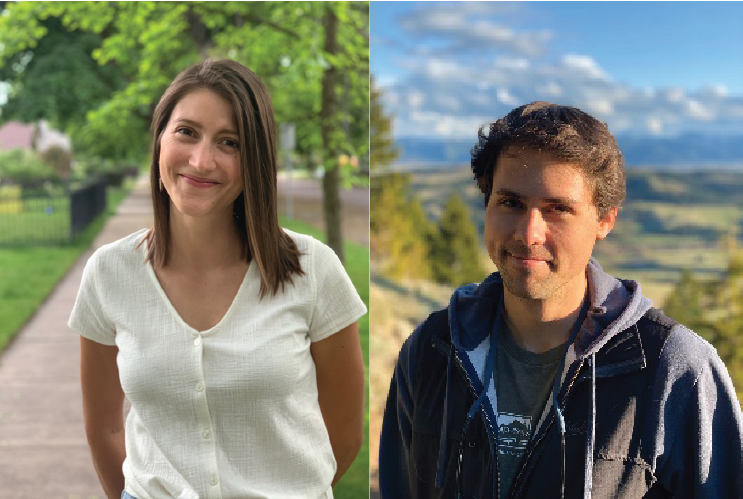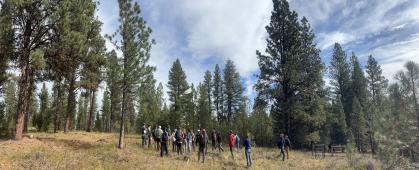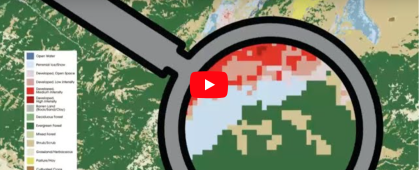
The Diving Into Data workshop, held February 26th 2022, introduced teachers to a variety of methods to employ real-world data in their classrooms. The workshop, which was hosted by the Science Math Resource Center and supported by Montana NSF EPSCoR, included lightning talks from Riley Logan, a Graduate Research Assistant at Montana State University, Megan Moore, a PhD candidate from the University of Montana, and Nicholas Borys, an Assistant Professor at Montana State University. It also included a presentation from Jeannie Chips, an instructor at Montana State University and the organizer of the workshop.
Riley Logan is part of the Montana NSF EPSCoR CREWS team and is working on developing remote sensing systems to study and explore the natural environment. He is currently using drone-based RGB and hyperspectral imaging to detect and monitor harmful algal blooms growing in Montana's waterways. Megan Moore is also a part of the CREWS with the Natural Resource Social Science (NRSS) team. She is studying human geography, or the study of people and their connections to the environment. Nicholas Borys leads an experimental condensed matter research group studying nano-optics and quantum materials. Along with the University of Arkansas, he launched the jointly operated MonArk NSF Quantum Foundry, which is focused on fundamental 2D materials research to advance quantum technology.
Some of the resources provided at the workshop included methods to collect data related to water quality, cloud cover, and ground temperature. The participating teachers learned about the data that has been collected by the Science Math Resource Center using the NASA AREN ROVER. Teachers also learned about NASA resources from MyNASA data and citizen science projects like GlobeObserver. Finally, the teachers who attended received resources to engage in data collection in the classroom like water quality measurement kits and temperature sensors.

